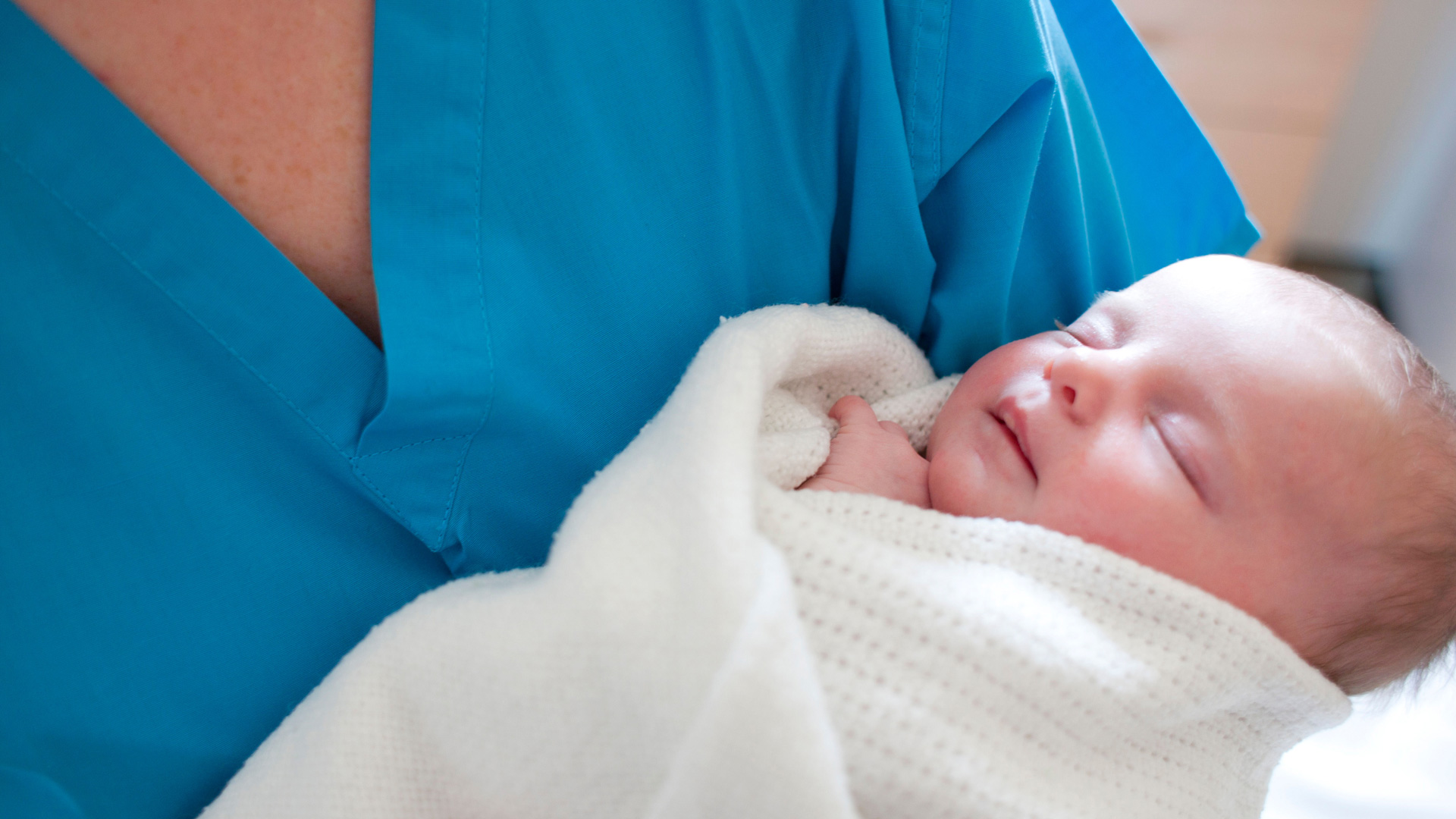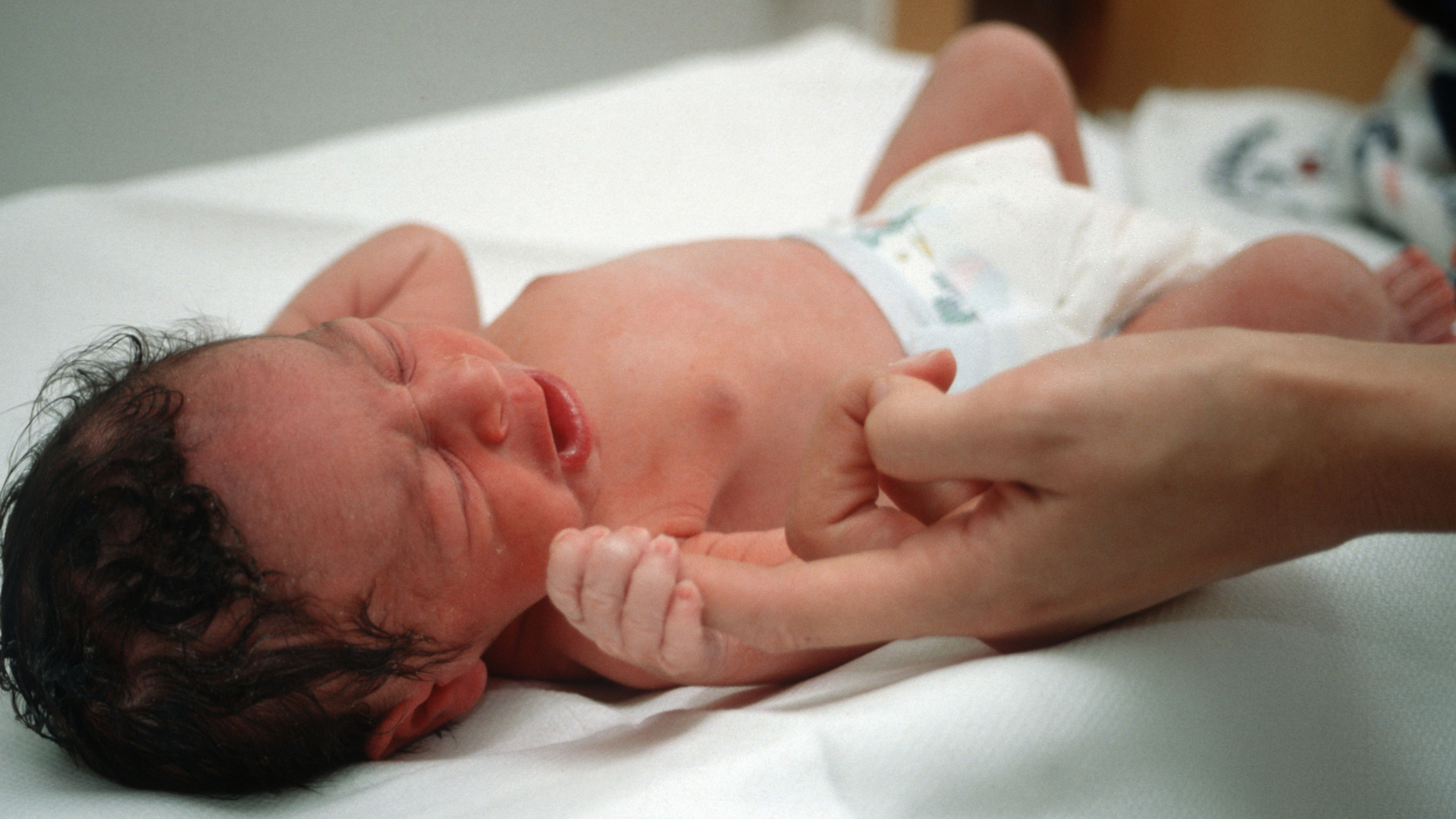What is the Apgar score for newborns and how does it work?

The Apgar score, named after obstetrical anaesthesiologist Virginia Apgar, is a quick, non-invasive way to assess the health of a newborn after birth.
If you're pregnant you may be wondering what to expect when you give birth. Once your baby (or babies) are safely delivered, a medical professional will conduct a few simple tests to determine your child's wellbeing. One such test is the Apgar score. Other tests to expect include a physical examination within 72 hours of birth (and again at 6-8 weeks). This checks your child's eyes, heart, hips and testes (in boys) for potential issues that may need further treatment.
Here, Michelle Lyne, Professional Advisor for Education at The Royal College of Midwives, explains what the Apgar score is and how it's done. You will also find out what the results mean for you and your baby.
What is the Apgar score?
"The Apgar score is a test done to check your baby’s wellbeing at and around birth," explains Michelle. "It's done straight after the birth – normally at one minute and again at five minutes after. It's simple, painless and does not hurt the baby."
How is the Apgar score done and is it done by a nurse, doctor or midwife?
"It's done by the midwife or the doctor," says Michelle. "The test doesn't take long. It assesses your baby’s heart rate, breathing, muscle tone, stimulation response and whether your baby’s skin is a good colour or pale."
The reason it's called the Apgar score is because the baby is tested and given a score up to 10. "Each part of the test is given a score from 0-2," explains Michelle.
"They are then added up to give the Apgar score, which will be between 0-10. Some maternity units don't include the appearance (colour) of the baby, in which case the score will be out of 8."
GoodtoKnow Newsletter
Parenting advice, hot topics, best buys and family finance tips delivered straight to your inbox.

What do the scores mean?
"A high score between 8-10 means your baby shouldn't need any additional medical support," says Michelle. "Between 5-7 and your baby may need a little support. This could mean drying with a warm towel, or they may have to have their mouth and nose suctioned to clear their airways of fluids that are there." While this sounds alarming, Michelle is quick to reassure that this support is: "normally very short-term. It's just to help your baby after the birth and is often done while the baby is still attached to the umbilical cord and with you."
What is a normal Apgar score?
"Ideally, your baby will have a score between 8-10," says Michelle. "This means they don’t need any additional support after the birth." If your baby has a lower score, don't panic. "It may simply mean they need to be dried with a warm towel to stimulate their system, or require oxygen to help their breathing for a short time."

If the score is below par, should new mums be worried? What could a low score mean?
"Don’t worry if it's low at first," says Michelle. "Most babies recover well with a little support in those first minutes."
Other babies may need extra attention. "Some babies, such as those born before term, those who have a complicated birth, and those born by caesarean section, may have lower scores at first," says Michelle. "The midwives give your baby the care they need but if there are concerns, they will call a neonatologist – a specialist doctor for newborns – to treat your baby. If this happens then the initial Apgar assessments are used to measure how well their efforts are working. The test will be done at five minute intervals for as long as required."
If you're having a high-risk pregnancy "the neonatologist may be present at the birth in case they're needed," says Michelle. "Although midwives are well trained in this area and all settings, including at home," she adds.
Is the Apgar test mandatory?
The Apgar score is compulsory but it doesn't hurt or upset your baby. It is important and it is for your child's welfare. "It's something the midwife or the doctor must do after the baby is born," says Michelle. "It's part of their assessment of your baby’s condition and is recorded in your and your baby’s notes."
Anna Bailey has been the editor of GoodtoKnow since 2018. Before joining the team she was Features Editor at MSN UK, where she oversaw Family Health and Days Out. Previously, she was Digital Lifestyle Editor for the broadcaster UKTV, and Lifestyle Editor for ITV.com. Anna studied Multi-Media Journalism at Bournemouth University and went on to gain her NCTJ and NCE journalism qualifications. Anna is responsible for driving the direction and editorial strategy of Goodto. A mum and experienced baby product tester, she is passionate about providing safe, trustworthy, and relatable advice for families of all kinds.